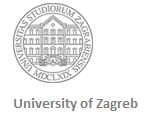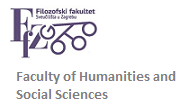Home » books by the staff-description
Category Archives: books by the staff-description
Multilingualism and Language Acquisition
Letica Krevelj, S. (2025). Višejezičnost i ovladavanje jezikom. FF Press. https://doi.org/10.17234/9789533792323 The book Višejezičnost i ovladavanje jezikom (Multilingualism and Language Acquisition) highlights the complexity of multilingualism and provides an overview of the current state of research in the field from psycholinguistic and educational perspectives. In its narrowest sense, the book focuses on multilingualism as a phenomenon involving more […]
Evaluative Discourse Metaphor in Online Communities
Mateusz-Milan Stanojević, Ljiljana Šarić. Evaluative Discourse Metaphor in Online Communities. Amsterdam, Philadelphia: John Benjamins (2025). This monograph introduces the Evaluative Discourse Metaphor model, which argues that participants in public and semi-public online discourse (re)use evaluative metaphors to construct and maintain communities. We explore how such metaphors trigger others with similar forms, though not necessarily the […]
Disruption of the common and significance of meaning : cognitive linguistics in learning and teaching
Renata Geld: Remećenje uvriježenog i značaj značenja: kognitivna lingvistika u učenju i poučavanju. Zagreb : Filozofski fakultet Sveučilišta u Zagrebu, FF Press, 2024. The emergence of this book coincided with the launch of ChatGPT and discussions about what such an open-access artificial intelligence system means for humanity and society as a whole. What […]
How space became place: essays on nineteenth-century Australian literature
Tihana Klepač: Kako je prostor postao mjesto : eseji iz devetnaestostoljetne australske književnosti. Zagreb: Durieux, 2024.
On Double Negation and Negative Concord
Irena Zovko Dinković: O dvostrukoj negaciji i niječnome slaganju. Zagreb: Hrvatska sveučilišna naklada, 2021.
Krčma, gostionica, pub: a diachronic study of translating culture-specific references in crime fiction
Snježana Veselica Majhut. Krčma, gostionica, pub: dijakronijska studija prevođenja kulturno specifičnih referenci u kriminalističkim romanima. Zagreb : Hrvatska sveučilišna naklada, 2020.
William Wordsworth and Romantic Memory
Martina Domines Veliki: William Wordsworth i romantičko sjećanje. Zagreb: Faculty of Humanities and Social Sciences, University of Zagreb – FFpress, 2021.
Assessing and validating knowledge in the language of science
Ivana Bašić. Dokazivanje i odnos prema znanju u jeziku znanosti. Zagreb : Hrvatska sveučilišna naklada, 2020.
Dancing In Red Shoes: Barbara Baynton and the Australian Myth
Tihana Klepač. Dancing In Red Shoes: Barbara Baynton and the Australian Myth. Zagreb: Faculty of Humanities and Social Sciences, University of Zagreb – FFpress, 2020.
Research in linguistics and translation studies
Nataša Pavlović and Mateusz-Milan Stanojević. Znanstvena istraživanja jezika i prevođenja. Zagreb: Faculty of Humanities and Social Sciences, University of Zagreb – FFpress, 2020.
Metaphor, Nation and Discourse
Ljiljana Šarić and Mateusz-Milan Stanojević (eds.). Metaphor, Nation and Discourse. Amsterdam, Philadelphia: John Benjamins, 2019. This edited volume examines how metaphors and related phenomena (metonymies, symbols, cultural models, stereotypes) lead to the discursive construal of a common element that brings the nation together. The central idea is that metaphor use must be questioned to lay […]
Romanticism and the cultures of infancy
Martina Domines Veliki, Cian Duffy (eds.). Romanticism and the cultures of infancy. Cham : Springer Nature, Palgrave Macmillan, 2020. This collection of essays explores the remarkable range and cultural significance of the engagement with ‘infancy’ during the Romantic period. Taking its point of departure in the commonplace claim that the Romantics invented childhood, the book […]
Translating from Croatian into English: A Handbook with Annotated Translations
Translating from Croatian into English: A Handbook with Annotated Translations. Jim Hlavac and Snježana Veselica Majhut (eds.). Zagreb: Hrvatska sveučilišna naklada. 2019.
Language could care less
Jeziku je svejedno. [Language could care less]. Anđel Starčević, Mate Kapović and Daliborka Sarić. Zagreb: Sandorf, 2019.
Beyond the 49th Parallel: Many Faces of the Canadian North (eng)
Beyond the 49th Parallel : Many Faces of the Canadian North / Au-delà du 49ème parallèle : multiples visages du Nord canadien, Évaine Le Calvé-Ivičević and Vanja Polić (eds.). Central European Association of Canadian Studies. Brno: Masaryk University Press, 2018. The volume is a collection of essays on the different issues regarding the North, as […]



